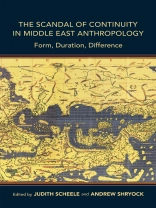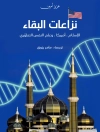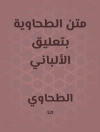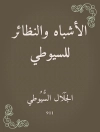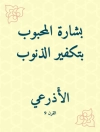Despite a rich history of ethnographic research in Middle Eastern societies, the region is frequently portrayed as marginal to anthropology. The contributors to this volume reject this view and show how the Middle East is in fact vital to the discipline and how Middle Eastern anthropologists have developed theoretical and methodological tools that address and challenge the region’s political, ethical, and intellectual concerns. The contributors to this volume are students of Paul Dresch, an anthropologist known for his incisive work on Yemeni tribalism and customary law. As they expand upon his ideas and insights, these essays ask questions that have long preoccupied anthropologists, such as how do place, point of view, and style combine to create viable bodies of knowledge; how is scholarship shaped by the historical context in which it is located; and why have duration and form become so problematic in the study of Middle Eastern societies? Special attention is given to understanding local terms, contested knowledge claims, what remains unseen and unsaid in social life, and to cultural patterns and practices that persist over long stretches of time, seeming to predate and outlast events. Ranging from Morocco to India, these essays offer critical but sensitive approaches to cultural difference and the distinctiveness of the anthropological project in the Middle East.
表中的内容
Acknowledgments
Introduction: On the Left Hand of Knowledge / Judith Scheele and Andrew Shryock
1. Dialogues of Three: Making Sense of Patterns That Outlast Events / Andrew Shryock
2. Totality and Infinity: Sharia Ethnography in Lebanon / Morgan Clarke
3. A Mirror for Fieldworkers / Christa Salamandra
4. Who are the Taliban? The Deflection of Truth among Tribal Pashtun in Pakistan / Ammara Maqsood
5. Secrecy and Continuity in Rajasthan / Anastasia Piliavsky
6. The Place of Strangers in Moroccan Domesticity: Nostalgia, Secrets, and the Continuity of Scandal / Mary Montgomery
7. Claiming an Individual Name: Revisiting the Personhood Debate with Afghan Poets in Iran / Zuzanna Olszewska
8. Segmentation versus Tyranny: Politics as Empirical Philosophy / Judith Scheele
9. The Republic of Precarity: ‘Abd al-Fattah al-Sisi, Trickster Politician / Walter Armbrust
10. Experience and Its Modes / Paul Dresch
References Cited
Index
关于作者
Walter Armbrust is Associate Professor in the Faculty of Oriental Studies, University of Oxford, and the Albert Hourani Fellow of Modern Middle Eastern Studies at St Antony’s College. His research focuses on mass media, popular culture, and politics in the Middle East, particularly in Egypt. He is author of Martyrs and Tricksters: An Ethnography of the Egyptian Revolution.
Morgan Clarke is Associate Professor in Social Anthropology at the University of Oxford and a fellow of Keble College. He is author of Islam and New Kinship: Reproductive Technology and the Shariah in Lebanon and Islam and Law in Lebanon: Sharia within and without the State.
Paul Dresch is an Emeritus Research Fellow of St John’s College, Oxford. He took early retirement from the Institute of Social and Cultural Anthropology in 2013 and is currently working on tribal law manuscripts from Yemen.
Ammara Maqsood is a Lecturer in Social Anthropology at University College London. She is author of The New Pakistani Middle Class.
Mary Montgomery gained her doctorate in Social Anthropology from the University of Oxford in 2015 and went on to hold a teaching Fellowship at the London School of Economics. She is author of Hired Daughters: Domestic Workers among Ordinary Moroccans.
Zuzanna Olszewska is Associate Professor in the Social Anthropology of the Middle East at the University of Oxford, and a fellow of St. John’s College, Oxford. She is the author of The Pearl of Dari: Poetry and Personhood among Young Afghans in Iran, winner of the 2015 Houshang Pourshariati Iranian Studies Book Award from the Middle East Studies Association, and the 2017 Middle East Section Book Award from the American Anthropological Association.
Anastasia Piliavsky teaches social anthropology at King’s College London, where she is a Senior Lecturer at the King’s India Institute. She is editor of Patronage as politics in South Asia and author of Stray men: Hierarchy as hope in a society of thieves.
Christa Salamandra is Professor of Anthropology at Lehman College and the Graduate Center, The City University of New York. Her work explores visual, mediated and urban culture in the Arab world. She is author of A New Old Damascus: Authenticity and Distinction in Urban Syria and editor (with Leif Stenberg) of Syria from Reform to Revolt, Vol 2.: Culture, Society and Religion.
Judith Scheele is Directrice d’études at the Écoles des Hautes Études en Sciences Sociales in Paris. She has carried out research in Algeria, northern Mali and Chad. She is author of Village Matters: Politics, Knowledge and Community in Kabylia and Smugglers and Saints of the Sahara: Regional Connectivity in the Twentieth Century.
Andrew Shryock is Arthur F. Thurnau Professor of Anthropology at the University of Michigan. He studies political culture in the Middle East, Arab and Muslim immigrants in North America, and new approaches to history writing. His recent books include Deep History: The Architecture of Past and Present, Islamophobia/Islamophilia: Beyond the Politics of Enemy and Friend, and From Hospitality to Grace: A Julian Pitt-Rivers Omnibus.
